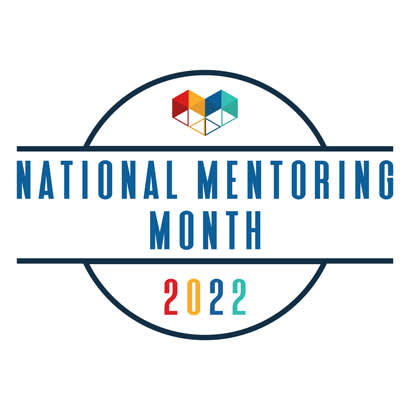
As we begin a new year, January is a common time to reflect on the past and look forward to the future. 2021 was, without a doubt, a very challenging year. The ongoing coronavirus (COVID-19) pandemic, isolation and loneliness, social injustice — all of which can contribute to poor mental health outcomes. And, youth continue to be one of the most vulnerable populations because of a lack in social connections as a result of virtual schooling, cancelation of extracurricular sports and activities, and isolation in general.
Many park and recreation agencies continue to reduce or cancel recreational programming and activities that once provided young people with enriching and positive social interactions. Not all is lost, however. There are many agency-based mentoring programs that have found ways to continue providing social connections despite COVID-19 restrictions. When meeting in person is not an option, many mentors and mentees have shifted to communicating virtually (i.e., text, video chatting and/or email). Some programs also have leveraged their outdoor spaces to hold physically distanced activities. While mentoring may look different compared to a few years ago, the shift to alternative formats allows for more flexibility — and arguably, increased access — to traditional programs.
January is National Mentoring Month and shines a light on the importance of mentoring and social connection, especially during times of hardship and uncertainty. MENTOR, The National Mentoring Partnership, celebrates the mentoring movement and uses collective voice to recruit new mentors, advocate for mentoring policies and practices, and drive meaningful change for youth today. National Mentoring Month aims to continue mentoring recruitment and raise awareness about the power of relationships.
In celebration, MENTOR has launched a new resource Becoming a Better Mentor: Strategies to Be There for Young People. It is designed specifically for mentors and covers 12 unique topics in various engaging formats. This free guide is full of real-world experience, advice and evidence-based strategies on how to “be there” for young people. It provides core skills, principles and practices of mentoring, including mindsets of attitudes that lay a strong foundation for a mentoring relationship, basic information about youth development and the mentor relationship cycle, as well as critical skills and competencies to continue meeting the needs of youth.
The 2022 National Mentoring Summit is also taking place January 26–28. Virtual in format, the summit will bring together those that represent the mentoring movement — including practitioners, researchers, philanthropic investors, youth leaders, government and civic leaders, and more. This is the annual opportunity for the mentoring movement to support and advance a collective mentoring agenda, strengthen programs and practices, and collaborate to support positive youth development through mentoring.
Additional ways you can participate in National Mentoring Month include:
- Posting on social using #MentoringMonth and #MentoringAmplifies (sample messaging and graphics available here)
- Upload a #ThankYourMentor post to social media on January 27 (sample messaging and graphics available here)
- Register for the 2022 National Mentoring Summit
- Schedule a meeting with your elected official (click here for tips on how to do so)
- Elevate your community partners who are intentionally centering mentoring (ideas can be found here)
- Get educated — listen to a podcast, read a book about mentoring, explore a new resource
- Engage with the field — attend a virtual or in-person event hosted by a local mentoring organization
Another way you can celebrate is by downloading NRPA's Youth Mentoring Framework, which has been developed to help local park and recreation agencies craft their own unique, individualized mentoring programs. It is designed to help your agency leverage local park and recreation assets that build protective factors around at-risk youth, while also forming strong social connections and positive relationships to address trauma, adversity and other challenges that youth experience.
Lauren Kiefert (she/her) is an NRPA Program Manager.

